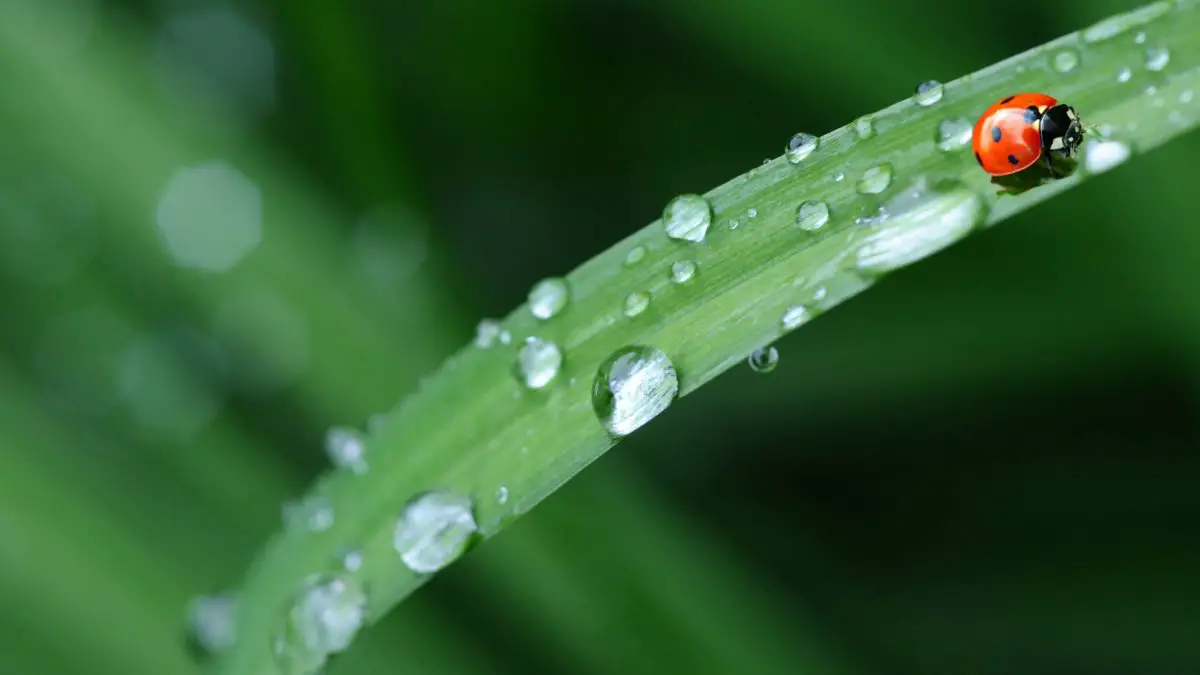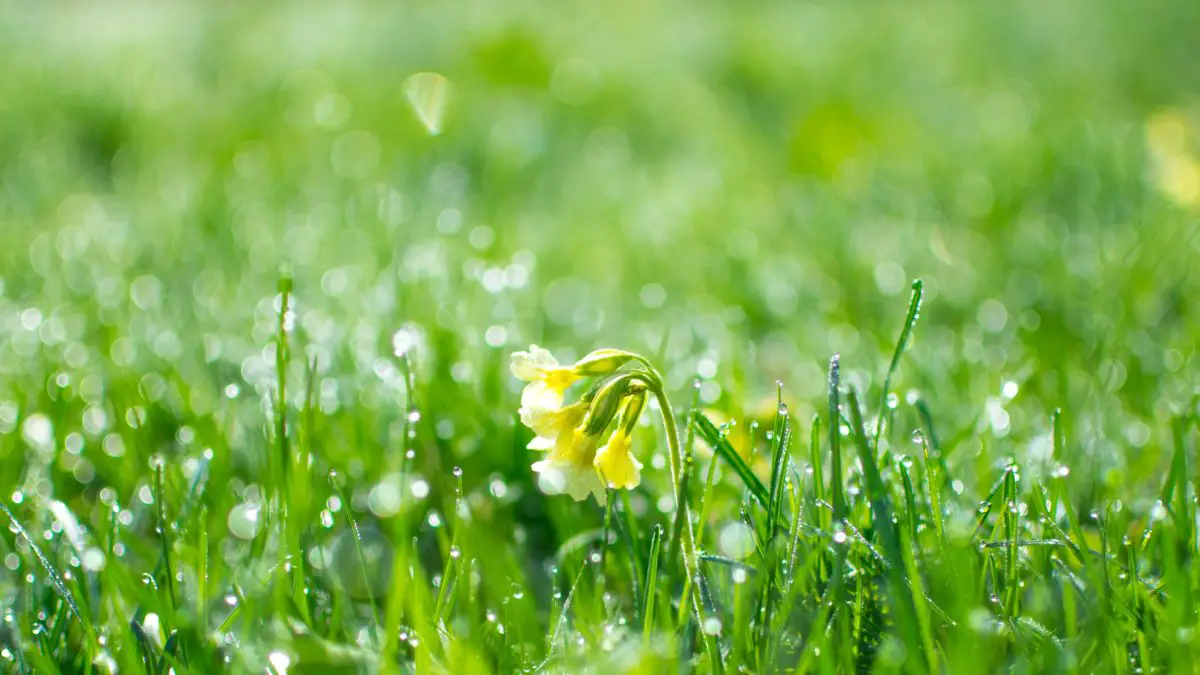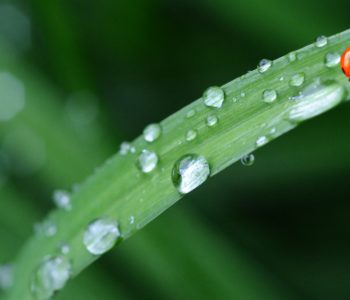In English we have four seasons; spring, summer, autumn (fall) and winter. This list will focus on spring idioms. When you think of spring time what comes to mind? New life? Flowers blooming? Or perhaps the weather improving? All of these are true when you use the word as a noun to describe the season. But the word spring can also be used as a verb, an action word.
So let’s explore spring idioms that cover the whole spectrum, from associations with the season through to idioms about the verb ‘to spring’. As English idioms can be hard to understand, you’ll also find examples and simple explanations.

Spring idioms about the season
First we’ll look at some idioms about the season of spring. In the Northern Hemisphere (including the US and UK), this falls in the months of March, April and May.
Full of the joys of spring
Most spring idioms have a happy feel as the season is full of new life, flowers reappearing after a cold winter and the weather slowly getting better. All of this makes people feel happier. So to say that someone is full of the joys of spring would be to say they are very happy and full of energy.
“It was lovely to see Grandpa back on his feet, full of the joys of spring.”
It is very important to point out that British people do like their sarcasm. This expression, when said in a certain tone, would mean the opposite.
Spring cleaning
We have many clean idioms in English, but not many of them are actually about cleaning!
With spring being the season of fresh beginnings, some people enjoy having a good, thorough clean of their house. Although you could do this kind of deep clean at any time of the year, it would still be referred to as spring cleaning.
“We’ve been spring cleaning all week as our son is due back from university tomorrow.”
So, why do we call it spring cleaning and not summer cleaning? The answer may not be as simple as you think! There are plenty of other summer idioms for you to learn, though.
Spring chick
A spring chick is simply a fun way of describing a young or youthful person. Again, British sarcasm may be used with this one to say that someone isn’t a young person anymore!
“I’m not feeling like a spring chick anymore after my hip replacements!”
April showers
April showers are the kind of light, fresh rain that falls in spring in the Northern Hemisphere. A ‘shower’ is a short, light burst of rain rather than the kind of rain that keeps falling for hours. You can discover more words to describe rain in our separate article.
“It rained while I was walking to work but luckily it was just an April shower.”
There is also a proverb, April showers bring May flowers. This means that when it rains a lot in April, it leads to more flowers blooming in May. Find more expressions about rain here, or discover some inspiring flower sayings.
Spring has sprung
Perhaps technically not one of the classic spring idioms, but a great play on words using the word ‘spring’ as both a noun and a verb.
The verb ‘to spring’ can mean to move or jump quickly, and the past participle is ‘sprung’. To say Spring has sprung simply means the season has arrived quickly or fully.
“Well, my hayfever is playing up again so I guess that spring has sprung.”
Mad as a March hare
To be as mad as a March hare is to be completely crazy; behaving erratically or eccentrically – like a hare at the height of its mating season. It can also mean ‘mad’ as in ‘angry’.
March is a month during which many types of hares breed. During this period, they indulge in energetic and elaborate courtship. It’s important to note that, despite its origin, this idiom has absolutely no sexual connotation!
“You might think I’m mad as a March hare when you hear what I have planned for my summer holiday!”
“My dad was as mad as a March hare after I broke his new laptop.”
Hare or a rabbit? No matter the animal, they are always fun to use in animal idioms.
A wet March brings a sad autumn (fall)
Not one of the most modern spring idioms, in fact this saying dates back to the British Victorian period. So, it may not be well known in American English.
This is an older expression related to the fact that a wet March sometimes means it is difficult to plant and grow seeds for the autumn harvest. Sowing seeds in wet conditions isn’t easy and may mean there are fewer crops in autumn.
“Well, I’m not holding out much hope for my allotment later this year. As they say, a wet March brings a sad autumn.”
A lot of idioms have an explanation behind them. There was a reason people really believed a wet march brings a sad autumn.
We have another page with idioms about fall/autumn if you want to check out some more seasonal sayings!
Spring is in the air
A more common way to describe the change from winter to spring is to say that spring is in the air. It’s a happy feeling you sense all around you as spring brings the feeling of new life, new hope and new change. This is why it has so many positive sayings associated with it.
“I’m feeling quite upbeat and happy as spring is in the air.”
There are lots of other idioms about happiness that are fun to use too.
Spring fever
At the start of spring, some people get restless or excited at the impending change that spring brings. This feeling can be described as spring fever.
“He’s just not acting like himself with this change in weather. I guess he has spring fever.”
Find some more idioms for excitement here.
March comes in like a lion and goes out like a lamb
The month of March is key when it comes to spring idioms. Often the weather starts bad and scary (like a lion) and ends with lovely, welcoming, pleasant days (the lamb).
An older saying you may hear to describe this is that March comes in like a lion and ends like a lamb. It starts badly but ends well.
“After the unpleasant weather a few weeks ago I’m loving these brighter days. I guess March comes in like a lion and goes out like a lamb.”
For the season before this, you can check out some winter idioms.

Spring idioms using spring as a verb (action)
A spring in your step
Feeling confident and walking in an energetic way? Then you may hear someone comment that you have a spring in your step.
“I love your new dress. It’s really giving you a spring in your step.”
Spring to mind
Spring, in this case, again is being used as a verb (as in a fast, sudden movement). When we talk about something springing to mind, it means that thought just appeared in your head.
This expression is often used in a negative way, meaning you can’t think of that particular thing at that moment.
“Tell me what springs to mind when you imagine a perfect future.”
“For the life of me I can’t remember the name of that movie. Nothing springs to mind.”
Spring into action
As you may have guessed, this expression is talking about a fast, sudden movement to do something. Imagine the movement of a compressed spring being released and uncoiling.
“I had no idea what to do but thankfully the police officer sprang into the action and took over.”
Not only can you spring into action but you can also use the word ‘spring’ paired with other directions. For example: ‘spring forward’ (move forward fast), ‘spring back’ (move backward fast), and even ‘spring forth’ (appear quickly).
Hope springs eternal
This is another of the really positive spring idioms. You would say hope springs eternal when you remain optimistic no matter the odds or situation.
“I know that things seem pretty bleak at the moment, but remember hope spring eternal. Never give up.”
So, there you are. An interesting list showing spring idioms for the season, the verb and also ideas associated with the season of spring. With three other seasons inspiring our language, there are plenty of other idioms that may ‘spring to mind’ as you strengthen your English day by day. Please leave a question below if you need any further help.




Do you have an explanation for the phrase: ‘Spring came in to fold’ ?
Thanx!
Hi Sarah, I believe this is a line from a poem, and you must read it in context: “And spring came in to fold / A mantle o’er the hills sublime / Of green and pink and gold.”
The verb ‘to fold’ relates to folding a mantle over the hills. ‘Spring came in’ means spring entered or arrived. So, in other words: as spring arrived, the hills turned green and pink and gold.